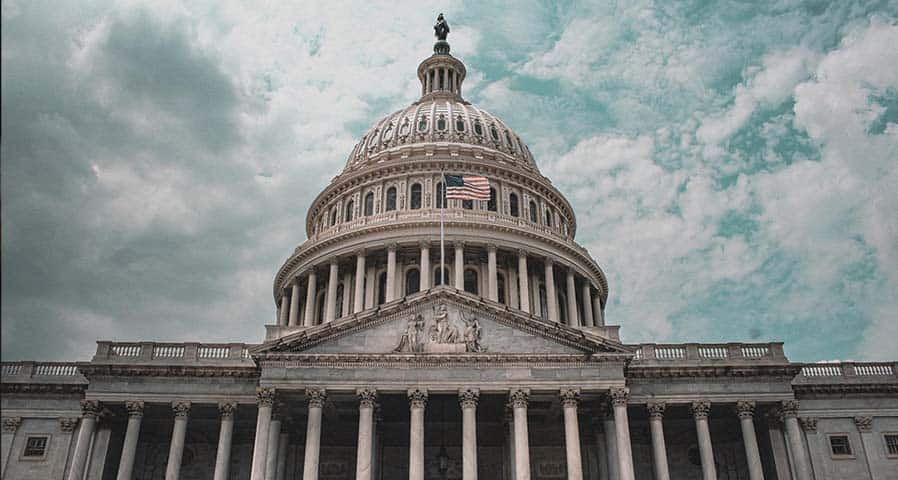The United States government is often at the forefront of major changes, leading the way by example. With the recent passage of the bipartisan Infrastructure Investment and Jobs Act (IIJA), the federal government is making it clear it wants EV adoption across the country. But why is the U.S. government so invested in our EV charging infrastructure?
Let’s take a closer look at what the government is working towards with its policies.
EV Charging Infrastructure Goals
Some of the goals the government is trying to meet with the U.S. EV infrastructure act include the following.
Reduce Pollution
It is estimated that around 250 million vehicles with internal combustion engines are on U.S. roads. These vehicles are responsible for 28% of annual greenhouse gas emissions. Air pollutant diseases are a costly burden to taxpayers and the nation’s healthcare system. On average, 123,000 to 381,000 life-years are lost each year across the population due to air pollution-related diseases.
Reducing air pollution relieves a burden off the taxpayer while also improving the quality of life.
More Efficient Fleets
More and more companies and organizations are transitioning to electric fleets. These enterprises are seeing a reduction in fleet operating costs. Moving away from fossil fuels is also helping to create more resilient fleets through energy diversification.
Remain Competitive in the Global Marketplace
The U.S. government has long recognized the importance of public infrastructure in relation to national security, passing the Federal Highway Act in 1956. The act helps to ensure the unobstructed movement of military assets. As military fleets make the transition to EVs, charging infrastructure is crucial for smooth operations.
“Our reliance on petroleum makes us vulnerable to price spikes and supply disruptions. EVs, help to reduce this threat because almost all U.S. electricity is produced from domestic sources, including coal, nuclear, natural gas, and renewable sources.” — Energy.gov
Apogee Charging Solutions has dedicated EV charging specialists that can assist you and your organization as you transition to EV charging. Check out all of our EV charging solutions here!
Government EV Incentives
Organizations and private citizens can take advantage of several federal and state incentive programs. It includes rebates, grants, tax credits, and low-interest loans to encourage the purchase of electric vehicles.
- The Clean Cities Coalition is a program from the U.S. Department of Energy. It aims to “support the nation’s energy and economic security by building partnerships to advance affordable domestic transportation fuels, energy efficient mobility systems, and other fuel-saving technologies and practices.” The coalition has secured hundreds of millions in funding for EV infrastructure projects across the country.
- Workplace Charging Challenge is another program from the U.S. energy department that is partnering with employers to help ensure they have the resources necessary to supply EV charging to their employees.
Along with incentives and programs working to advance EV charging infrastructure, utility providers are also doing their part to make the transition to electric vehicles go a little more smoothly.
Why Businesses are Investing in EV Charging Infrastructure
Businesses are recognizing the benefits of investing in EV charging infrastructure. The chargers attract customers and help companies retain valued employees. It also indicates the organization is committed to meeting its sustainability goals.
Fleet operators transitioning to electric vehicles are also seeing benefits in lower operating and maintenance costs.
Are you ready to transition to electric vehicles or want to learn more about government EV incentives? Contact Apogee Charging Solutions today to see how we can help you work towards a more sustainable future. To speak with an Apogee Charging Solutions expert about EV charging stations, call 484-816-2076, email [email protected], or schedule a call that fits your needs by clicking the button below.








0 Comments